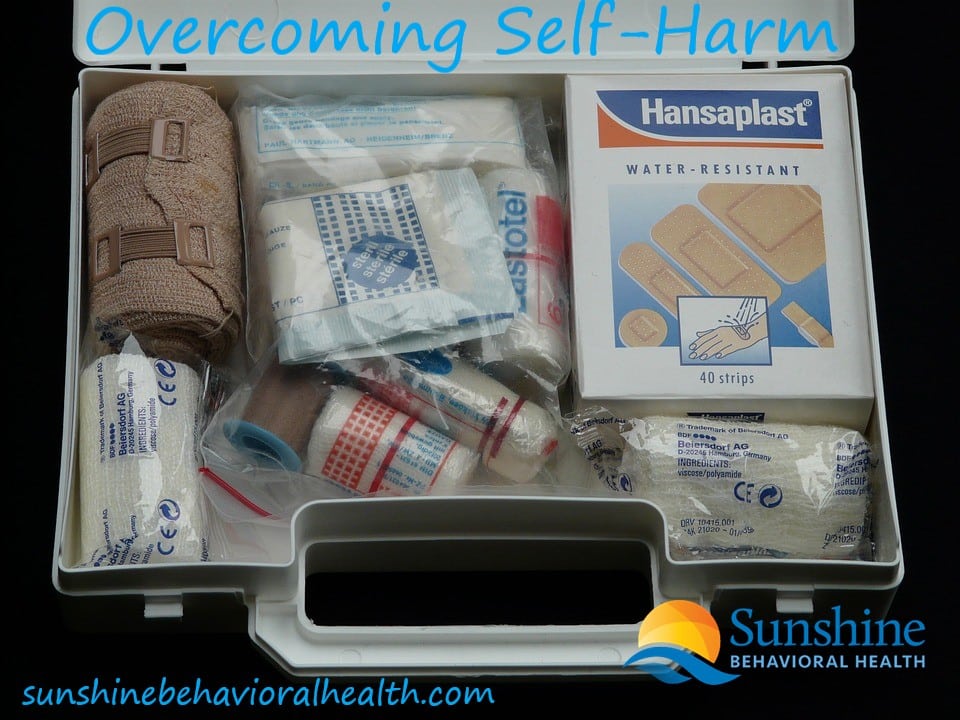
Putting a Stop to the Pain: 3 Ways to Overcome Self-Harm
Self-harm is the habit or behavior of inflicting pain on oneself and can be a symptom of potential emotional distress. What are some ways to overcome self-harm?
Pain is often associated with injuries caused by outside influences. Whether it’s an accident, domestic violence, or mishaps caused by others, it’s common to think about external types of pain.
When Pain Is Self-Inflicted
When people inflict pain on themselves, that’s a different paradigm to consider. Beyond accidents or problems with other people, self-harm comes from deeply rooted unresolved issues. Some use it as a way to cope with negative thoughts and feelings, but it becomes a vicious cycle of shame and isolation.
Thoughts of self-harm can lead to life-threatening consequences such as suicide. In 2019, about 14 people per 100,000 died from suicide. In the United States, 130 people kill themselves every day, a loss of life that starts with thoughts of self-harm.
March is Self-Harm Awareness Month, a good time to put this behavior in perspective and ask ourselves how we can overcome harmful thoughts and actions.
Ways to Overcome Self-Harm
Identify and avoid triggering thoughts and situations
Awareness is the first step to stopping self-injury. Perhaps you have observed a pattern of hurting yourself when things become stressful or you encounter a relationship problem. Whatever it is, finding patterns in habits or behaviors can help you become aware of your responses.
Some common self-harm triggers include:
- Experiencing intrusive thoughts about recent or past events.
- Feeling anxiety or depression regarding circumstances.
- Wanting to punish oneself for real or imaginary wrongs.
When such triggers appear, it can be helpful to write them down to help you better understand how your thoughts might influence your self-harming behaviors.
Replace self-harm with healthy coping habits
There are many ways to cope with emotional and mental distress, but not all of them are healthy. While self-harm is often a coping mechanism to relieve tension, it sends people into feedback loops of negative emotions such as shame, guilt, and isolation.
Scars from inflicting oneself can be a source of shame, and those who self-harm may try to avoid others because they fear judgment. This cycle could lead to increased instances of shame, isolation, and self-injury, which can lead to life-and-death situations.
But it’s possible to gain control by replacing self-harm with healthy coping habits. Think about activities that you enjoy that could help you release emotional or mental frustrations. These activities might include:
- Listening to calming music.
- Exercising or going for a walk.
- Creating art.
- Writing in a journal.
- Talking with a supportive friend.
- Playing sports.
- Spending time with a pet.
Make a list of calming, enjoyable things, and refer to that list when you experience thoughts of self-harm. Consider taking a proactive approach by doing one or two things on your list to boost your mood.
Seek help
When you can’t manage something on your own, there’s no shame in seeking professional help. Much as physical conditions require doctors for healing, self-harm is a mental condition that requires a therapist, counselor, or other qualified experts to help you work through problems.
If substance abuse is your specific type of self-harm, you can start by finding a supportive rehab center that understands your needs. If you’re having thought of suicide, contact a crisis line such as the National Suicide Prevention Lifeline (1-800-273-8255).
Understanding Self-Harm: Taking Action Now
Although you might try to hide self-harming behaviors, its constant presence can overshadow life’s other possibilities. By taking action through being aware, finding healthy habits, and seeking expert help, it’s possible to overcome self-harm and thrive.
Sources
afsp.org – Suicide Statistics
nami.org – Self-Harm
ef.efu – 20 Signs You’ve Made a Friend for Life
sunshinebehavioralhealth.com – Learn About Sunshine Behavioral Health
suicidepreventionlifeline.org – National Suicide Prevention Lifeline
A Message From Our CEO
Medical disclaimer:
Sunshine Behavioral Health strives to help people who are facing substance abuse, addiction, mental health disorders, or a combination of these conditions. It does this by providing compassionate care and evidence-based content that addresses health, treatment, and recovery.
Licensed medical professionals review material we publish on our site. The material is not a substitute for qualified medical diagnoses, treatment, or advice. It should not be used to replace the suggestions of your personal physician or other health care professionals.






